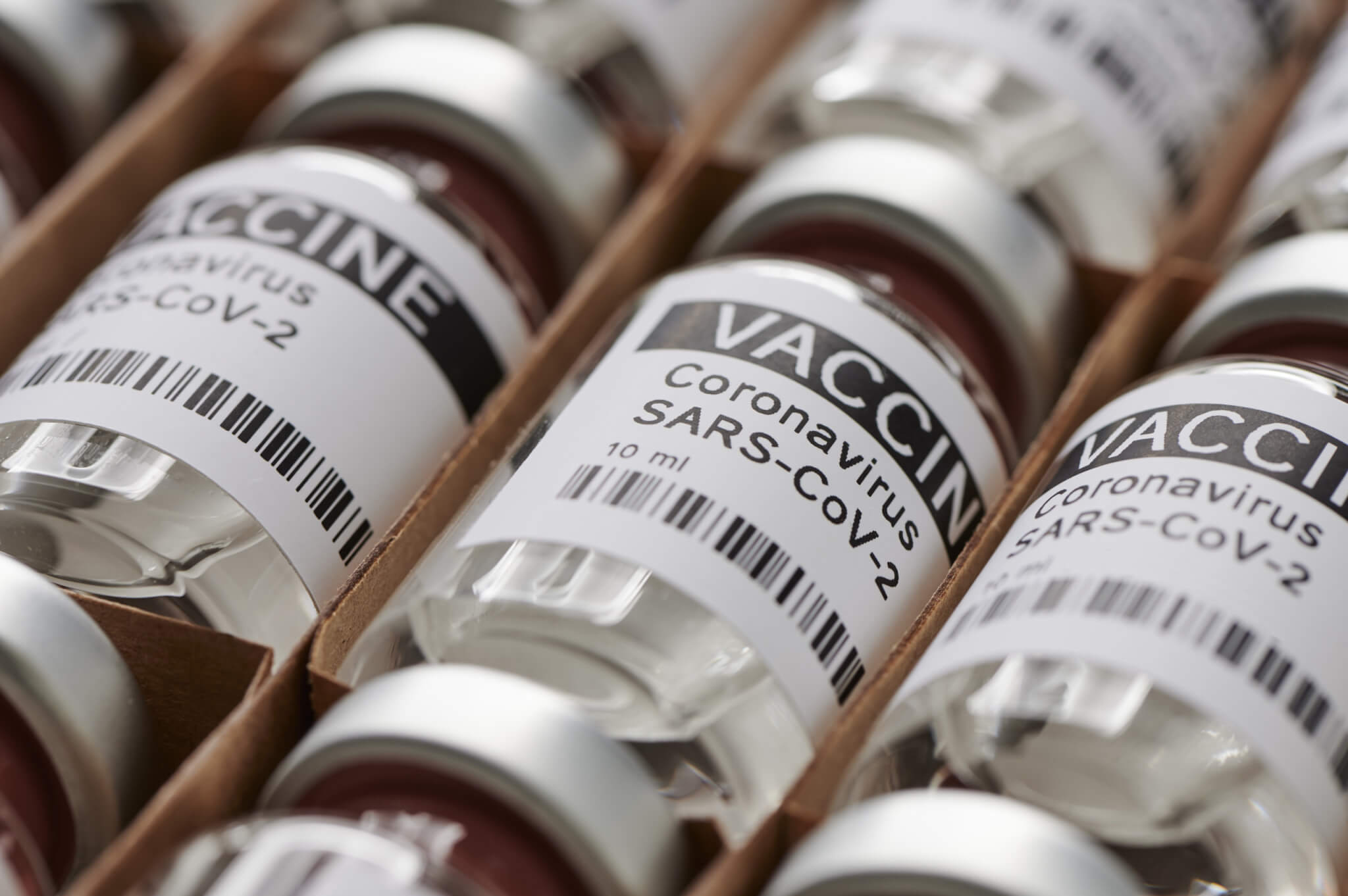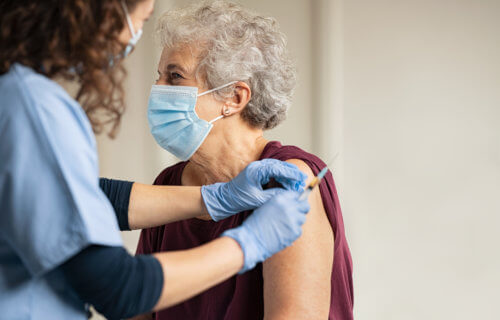PROVIDENCE, R.I. — New research examining the Moderna and Pfizer-BioNTech mRNA vaccines against COVID-19 finds the risk of negative effects are exceptionally low for both. However, study authors from Brown University say the Moderna vaccine is slightly safer and more effective than the Pfizer-BioNTech vaccine variety — especially for older patients.
Both the Moderna and Pfizer-BioNTech mRNA vaccines for COVID-19 have been considered safe and effective for use among the general population for quite some time. However, in-depth evidence regarding their safety and effectiveness among specific demographics (older adults and individuals with chronic health conditions) has been far more limited.
So, a team of scientists set out to conduct the largest head-to-head comparison study of those two mRNA vaccines, both of which are approved by the U.S. Food and Drug Administration. The ensuing results indicated that for older adults, the Moderna vaccine delivered a slightly lower risk of adverse events than the Pfizer-BioNTech vaccine.
“The results of this study can help public health experts weigh which mRNA vaccine might be preferred for older adults and older subgroups, such as those with increased frailty,” says lead study author Daniel Harris, an epidemiologist and research scientist in the Center for Gerontology and Healthcare Research at the Brown University School of Public Health, in a media release.

The research team assessed over six million older adults (average age of 76), who had been vaccinated against COVID-19 using one of the two mRNA vaccines. The two mRNA vaccines, while similar, also have subtle differences in manufacturing, administration, and immune response.
The study ended up confirming that among older adults across both vaccine groups, the risk of a serious adverse health event was very low. Study authors also note that for these older individuals, the Moderna vaccine was associated with a four-percent lower risk of pulmonary embolism (a sudden blockage in blood vessels of the lungs) and a two-percent lower risk of thromboembolic events, which can refer to several conditions related to blood clotting.
Additionally, the Moderna vaccine was associated with a 15-percent lower chance of suffering diagnosed COVID-19 infections in comparison to the Pfizer vaccine.
Importantly, the research team stresses that the risk of suffering an adverse health event from a natural SARS-CoV-2 infection, the virus that causes COVID-19, is significantly higher than any risk one may incur from either mRNA vaccine. Meanwhile, now that over 70 percent of the global population has been given one type of COVID-19 vaccine, and vaccine supply is less of a concern, Harris notes the next big challenge is an urgent need for detailed information in regards to vaccine effects and safety to guide decision-making.
“Immunization with either mRNA vaccine is substantially better and safer than not being vaccinated at all,” Harris explains. “But in an ideal world where we can have a choice between which vaccine product is used, we wanted to see whether one vaccine was associated with better performance for older adults and those with increased frailty.”
Harris continues that there is a pressing need to understand vaccine performance in real-world populations. He notes that older individuals with chronic health issues tend to be excluded from clinical trials or represented in small numbers. This is particularly noteworthy considering that older adults, especially those in nursing homes, usually have a higher chance of developing severe COVID-19. Older people with frailty may also exhibit differences in their immune responses to vaccines, according to Harris, which makes it even more important to better understand how these vaccines work for frail older adults.
This study was conducted as part of a project called the IMPACT Collaboratory, led by researchers at Brown University and Boston-based Hebrew SeniorLife. The aim of the collaboratory is to enable massive monitoring of the long-term safety and effectiveness of COVID-19 vaccines among Medicare beneficiaries, in collaboration with CVS and Walgreens pharmacies.
“Because we had these real-world data and a cohort that included millions of older adults, we were able to tease apart potentially very small differences in vaccine safety and effectiveness and perform analyses on important clinical subgroups,” Harris comments.
According to the study authors, the improved safety of the Moderna vaccine when it comes to certain adverse events, such as a pulmonary embolism, may be due to its greater protection against COVID-19, especially for non-frail older adults.
“We think that these two things, safety and effectiveness, are interrelated,” Harris notes. “The slightly reduced risk of pulmonary embolism and other adverse events that we saw in individuals who received Moderna may be because the Moderna vaccine was also more effective at reducing COVID-19 risk.”
All in all, however, the study was ultimately unable to definitively conclude whether or not the differences in adverse events were due to safety or effectiveness. As such, researchers recommend additional research in this area. This project also only looked at the first dose of the mRNA vaccines, so another logical next step may involve similar comparisons for subsequent vaccinations.
“You can imagine regularly updating these types of analyses as new vaccines are developed,” Harris concludes. “Depending on which one comes out on top, even on a very small scale, that may have big implications at the population level and render a preference for that particular vaccine.”
The study is published in JAMA Network Open.


Interesting fact #1: Almost all of the deaths that were attributed to c0v!d were actually due to already present terminal co-morbidities. A lot of people died WITH c0v!d; very, Very, VERY few died FROM c0v!d.
Interesting fact #2: There have been, are, and will be exponentially more people dying from side effects of the inaccurately labeled “vaccines” than will ever die from c0v!d itself.
My wife had the Moderna “vaccine”, was bed-ridden the next day, then developed atrial fibrillation, and then suffered a stroke. She was only 63 years old and had ZERO history of heart trouble or related medical problems.
Your article says there is only a slight difference between the Moderna and the Pfizer vaccine, regarding the risk of adverse effects, but then it fails to quantify that risk. If there happened to be a 38% chance of adverse effect from one and only 37% chance of adverse effects from the other, would that make a meaningful difference to seniors? No, the high risk for both would be of much more concern. And why did you not list the possible adverse effects? Many are extremely serious. Death, for example.